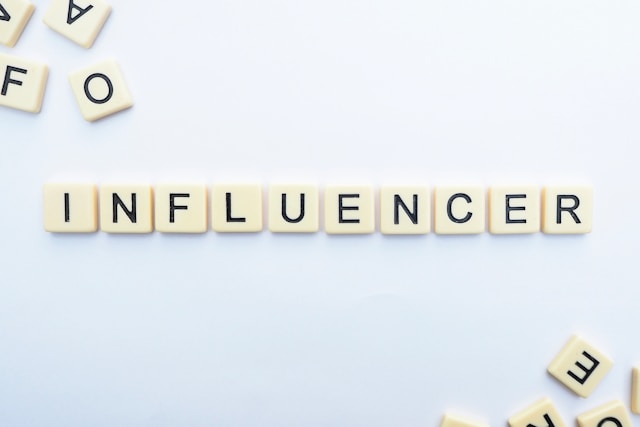Key Points on Advertising Laws in China
As in all countries, advertising laws in China aim to protect users and consumers from possible deceptions or dangers of advertising in certain sectors. This is why some types of content and companies are regulated or prohibited in the Asian country.
In addition to general regulations that everyone must follow according to the Advertising Law of the People’s Republic of China, China also presents its own regulations and prohibitions specific to certain sectors, such as education, alcohol, or investments.
Regulated companies in China
In China, besides the industries that are outright banned from advertising, there are sectors that, while permitted, face stringent advertising regulations. This is due to the cultural perspective or the potential risks associated with these industries, such as tobacco, investments, and alcohol.
Investments
Any advertising where there is an investment and investors expect the return of their money must warn of the warnings and potential risks when carrying out the said act and the ban on guaranteeing the maintenance of funds. On the other hand, investment announcements cannot include images of institutions, academics, beneficiaries, or industrial or professional organizations that recommend said service or product.
Alcohol
Worldwide, regulations on alcohol advertising are prevalent. In China, however, these restrictions are notably stricter; advertisements for alcoholic beverages are prohibited from promoting or incentivizing consumption.
Moreover, advertising laws in China prohibit the depiction of hazardous activities, such as operating boats, cars, or airplanes, while under the influence of alcohol in advertisements. Additionally, the content of alcohol advertisements must not suggest that consumption leads to relaxation, decreased anxiety, or enhanced physical strength.
Medical
Prescription medications, except narcotics and those for use by medical professionals, can only be advertised in medical and pharmaceutical publications. Other special medicines may not be advertised, including narcotic, radioactive, or toxic drugs, among other medicines that can only be used by professionals.
On the other hand, advertising of products or services may not be published in mass media, including, medical equipment, beauty, and online games, among others, that may impact the physical and mental health of minors.
Tobacco
In China, the tobacco industry is subject to some of the most stringent advertising regulations in Asia. Advertising for all tobacco products, encompassing brands, names, or any associated features, is prohibited across media, social networks, and public spaces. Additionally, a primary goal of these regulations is to ensure that minors are not targeted by any promotional materials or messages concerning tobacco.
Companies banned in China
Under the law, the government has imposed a strict ban on companies associated with the categories that are Symbolism and superstitious advertisements that can significantly drive consumer behavior, Addictive substances, Terror, Violence, Pornography, Obscenity, and Gambling.
Regulations Governing Collaborations with Influencers
Suppose you are interested in collaborating with influencers to help promote your products or services. In that case, you must keep in mind that said influencer must have used your product before making any false claims, so you must provide the influencer with a sample of the products you are going to promote.
Additionally, before selecting the influencer, you will need to make sure that the influencer has not previously made any false statements or, if so, that he has not been sanctioned by the administration during the 3 years prior to his official appointment as an influencer.
Finally, children under 10 years of age will not be able to be influencers who promote a brand.
Content Advertising Laws
China’s advertising laws, which pertain to content, are extensive and apply universally across all platforms. The regulations stipulate that certain content must not be included in advertisements:
- You cannot make advertising content that attacks dignity or reveals secrets of the Chinese State.
- The use of images or names referring to State organizations or to its workers.
- Any information that endangers the safety of some people or property is prohibited.
- Content that is prohibited discriminates against other races, religions or genders.
- Words that imply superiority before other organizations, brands or state institutions.
- Content that encourages not caring for the environment, cultural heritage or natural resources.
- Use of the national emblem, the flag, emblem or military song of the People’s Republic of China.
- As we saw in the first section, it is not allowed content related to obscenity, pornography, horror, violence, or superstitions.
Consequences of breaching advertising regulations in China
Penalties for breaching the Advertising Law of the People’s Republic of China differ based on the specific violation. Fines may reach 100,000 RMB for infractions deemed not severely detrimental to society. More serious offenses could incur costs ranging from three to five times the expense of the advertisement, with fines starting at 100,000 RMB and potentially reaching 1 million RMB.
Furthermore, if a company is found to have three or more illegal advertisements, it could face fines ranging from a minimum of 1 million RMB to a maximum of 2 million RMB. Such violations may also lead to the revocation of the business license and advertising review approval documents, with a prohibition on renewal applications for one year.
Additionally, certain entities, like medical institutions, may face the loss of their professional licenses, in addition to the aforementioned fines, should they commit such infractions.
Chinese Social Media
Understanding the advertising laws in China, both general and specific, allows us to focus on the existing advertising regulations that apply to leading Chinese social networks like WeChat, Xiaohongshu, and Douyin.
- Xiaohongshu Ads
Xiaohongshu, also referred to as Little Red Book, enforces advertising regulations to guarantee the authenticity of advertised content. Similarly to other social networks, it prohibits the use of terms that impinge on dignity, such as “the best” or “number one,” when referring to other companies.
- Douyin Ads
Douyin, the Chinese counterpart to TikTok, imposes advertising regulations that restrict the capabilities of businesses.
- Illegal or dangerous behavior.
- Violent scenes, which can cause negative feelings in viewers.
- Sexually suggestive content: Any content that includes sexually suggestive actions, whether through gestures, clothing, or text, is completely prohibited. Also, you should not expose too much skin.
- Display of content related to tobacco or alcohol (not in all regions of China).
- Sensitive content: Ads containing sensitive content may cause controversial issues in the community, so they are banned. Content included in this section may include images depicting violence, crime, fear or panic, or animal abuse.
- Content that discriminates against other ethnicities, races or sexes.
- Criticize the competition: Ads that undervalue the goods or services of other platforms are not allowed.
- Hyperbolic statements: Terms like “this product is number 1 in the world” are prohibited, as are other platforms.
- Baidu Ads
The goal of Baidu Ads advertising restrictions is to maintain a strict code of conduct. The use of terms that imply that what is being offered is the best and unique in the market is a type of behavior that is highly penalized and restricted on the platform.
In addition to the ads that we have seen that are prohibited, such as obscene or violent ones, Baidu Ads has restrictions for the following types of products or brands that will not be able to advertise on their platform:
- Medical products.
- Opportunities to establish a franchise.
- Questions related to auctions.
- Producers of sexual products.
The revocation of business license or loss of license To be able to practice in the field in which you work, there are possible sanctions for violating Baidu Ads advertising rules.
Baidu Ads is known for having advertising regulations that are considered stricter than those of the government.
Baidu Ads bans the publication of advertisements from companies in the following industries: medical apparatus and instruments, medical treatment and health, healthcare products, auction houses, franchise opportunities, sex products, virtual currencies, and matters related to political stability.
- WeChat Ads
WeChat, the extensive Chinese platform developed by Tencent, has specific advertising laws in place. The key regulations include:
- It is completely prohibited to use third-party graphic documents without authorization prior to the company.
- No brand advertising may include fake patented products.
- It is illegal to use absolute terms such as “better”, “higher quality” or “higher standard”.
- It is not allowed to infringe the culture or carry out any propaganda that could affect the reputation and security of the country and the State.
- Misleading or false advertisements can not be done.
- The statistical data used in the advertisement, such as scale results or quotes, must be accurate and indicate the information’s source.
- The advertisements that are easy to misunderstand by clients cannot be used.
- Furthermore, WeChat restricts the initiation of high-risk advertising campaigns, crowdfunding activities, advertisements unrelated to the purchase of physical goods, activities involving excessive interest, and non-specific advertisements.
- Weibo Ads
Ads are not allowed on Sina Weibo, a Chinese social network similar to X, for entice users to click on ad content. On the other hand, advertising links or advertisements cannot be included in emails sent to users without their prior authorization.
To avoid annoying Weibo users, an option to close pop-up ads, which means you can easily close ads with one click.
On the other hand, advertisers are also prohibited from using unfair competition methods, such as blocking competing ads on some applications or network devices, according to Sina Weibo regulations.




